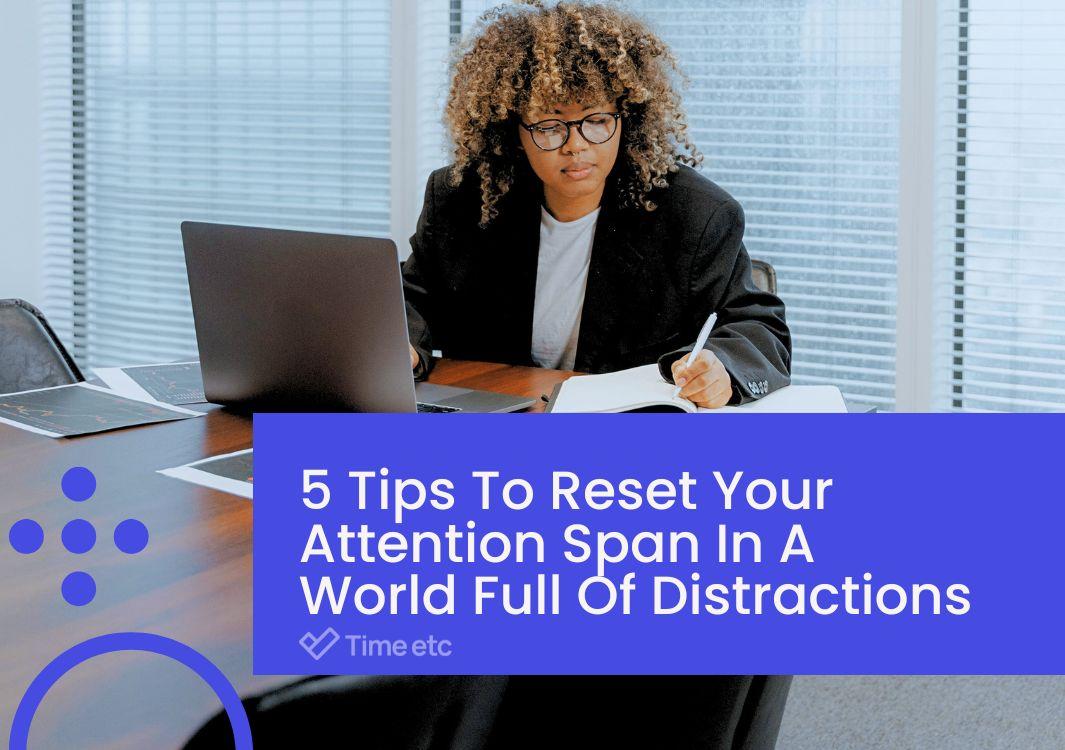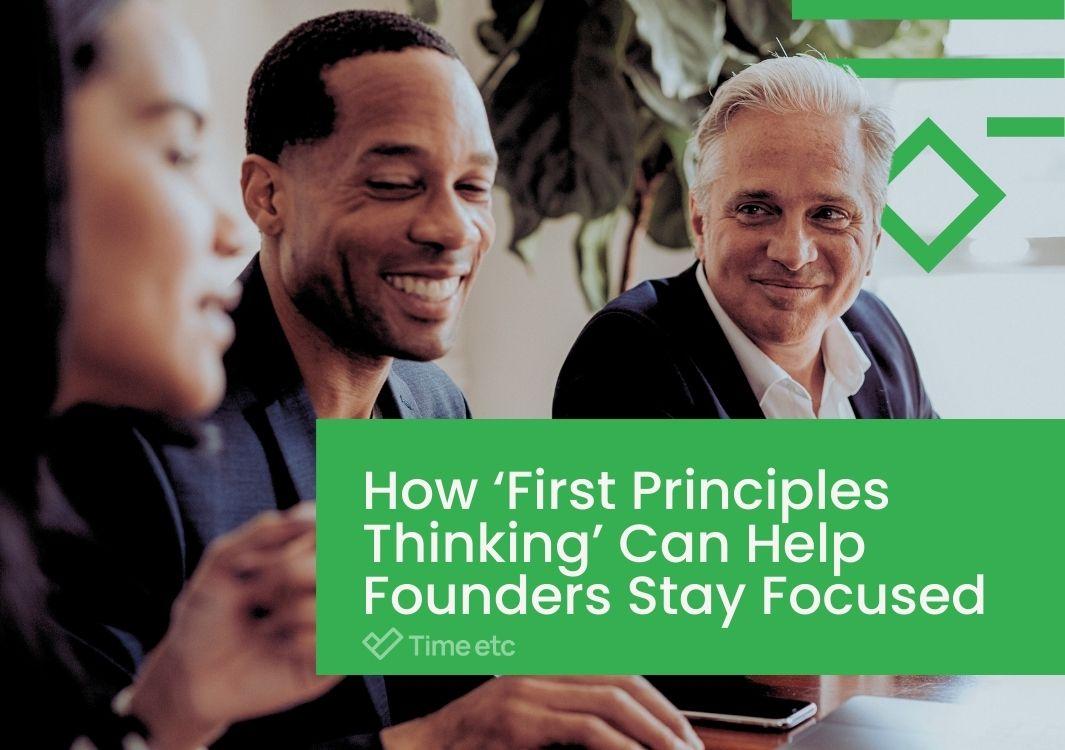No matter who you are, where you come from, or what your job title is, stress is something we will all experience in our lives.
For business owners in particular, the enduring responsibility of making sure their business is successful and profitable brings a unique set of pressures to contend with on a day-to-day basis. And according to a recent report, 75% of small business owners are concerned about their mental health, while a staggering 56% have actually been diagnosed with anxiety or stress-related problems by a professional.
Stress isn’t just a highly unpleasant feeling—it can seriously impact your cognitive skills, productivity, and physical health, and you can't afford to compromise any of those areas if you want to grow your business.
We may not be able to completely eliminate it from our lives, but learning how to manage stress effectively can make a huge difference to the way we work and how we feel each day.
And who better to ask about stress management than some of the world’s most renowned business minds? They wouldn't have gotten to where they are today if they didn't have effective techniques to combat stress and build resilience.
So let's dive in!
1. Take a moment – Oprah Winfrey
When tasks just keep piling or deadlines are looming, it feels like the last thing we should do is stop working. But as counterintuitive as it seems, this is often the best approach to take in the long run.
It's easy to believe that someone as accomplished as Oprah Winfrey must possess a superhuman ability to work around the clock, but this couldn’t be further from the truth.
When asked how she copes with stress, Winfrey told interviewers at Fast Company, "I close the door, wherever I am—at my old office in Chicago, I’d literally go in the closet—and just sit and breathe."
As the nation’s favorite talk show host and entrepreneur knows, taking a few minutes out from a stressful situation helps to clear your mind and provide you with a sense of perspective. Recent research suggests that actively choosing to be alone can lead to increased relaxation and reduced stress.
Not only that, but something as simple as breathing is widely accepted as one of the most effective stress management techniques that you can use pretty much anytime and anywhere. According to the American Institute of Stress, taking a deep breath increases the supply of oxygen to your brain and stimulates the parasympathetic nervous system, which promotes a state of calmness.
2. Break it down to the basics – Bill Gates
As a business owner, your daily routine is probably a whirlwind of meetings, emails, and to-do lists that never seem to get any shorter. When confronted with such a hefty number of responsibilities, it’s easy to feel overwhelmed and freeze up. Where should you start? How can you ever expect to get everything done without working yourself into the ground?
For Microsoft founder Bill Gates, a valuable lesson he learned (from none other than business magnate Warren Buffet) is to cut through the noise and strip your task list down to the most fundamental priorities. Think about which jobs will make the biggest difference to your current situation, and get to work.
When it comes to overcoming stressful situations, simplicity is key. Instead of spreading yourself too thin and getting bogged down in the minutiae, focusing on the 'basics' allows you to keep things manageable, as well as set more realistic expectations for yourself. This will reduce stress and lead to more efficient, positive results in your work.
See: How To Prioritize As An Entrepreneur: What To Do When All Tasks Feel Important

3. Take action (if you can) – Jeff Bezos
If you were to ask Amazon founder Jeff Bezos, he believes that a significant portion of the stress we're likely to experience in our lives is the result of avoidance. In other words, ignoring things that you shouldn't be ignoring.
"Stress primarily comes from not taking action over something that you can have some control over," he said in an interview with Academy of Achievement. "I find as soon as I identify it, and make the first phone call, or send off the first email message, or whatever it is that we're going to do to start to address that situation—even if it's not solved—the mere fact that we're addressing it dramatically reduces any stress that might come from it."
As the saying goes, nothing changes if nothing changes. Even taking a small step to take control of the problem is a step in the right direction, and you'll feel a lot better with even one less thing to worry about.
4. Keep things in perspective – Richard Branson
If you’ve ever worked in a fast-paced and high-achieving team, you’ll know that even the smallest problems can seem hugely significant. While attaching importance to every task or responsibility can help you achieve great things in the short term, such perfectionism can end up being a major source of stress and, eventually, burnout. This is where Virgin Group founder Richard Branson can help bring us back down to earth.
According to Branson, one of the best ways to avoid falling into the grip of stress is to focus on the bigger picture—primarily, the health and well-being of yourself and your loved ones. Although workplace stress is unavoidable at times, taking a moment to reflect on what matters most can provide some much-needed relief.
5. Plan ahead – Jack Dorsey
It can be difficult to predict what life will throw at you on any given day. And for some, particularly former Twitter CEO Jack Dorsey, this uncertainty is a slippery slope that leads to stress.
"I think generally stress comes from things that are unexpected," Dorsey told Forbes. "The more you can set a cadence around what you do and the more ritual and the more consistency you can build in your schedule, the less stress you're going to have."
As a result, Dorsey uses day-theming techniques to organize his weeks. Mondays are dedicated to meetings, Tuesdays are spent developing products, Wednesdays are focused on marketing, Thursdays are for networking, Fridays are committed to company culture, and Sundays are spent on recruitment.
While you’re bound to encounter curve balls that disrupt your typical working pattern from time to time, establishing a regular routine allows you to dive straight into the important stuff rather than wasting time and energy each morning trying to decide where to direct your efforts that day. It's a great way to avoid decision fatigue, as well as bring your stress levels down.

6. Switch off at the end of the day – Sheryl Sandberg
At the end of a long and hectic day, it's only natural to want to decompress. For many of us, a scroll through our social accounts or watching YouTube videos is our most convenient option.
However, research suggests that looking at our devices late at night can prevent our bodies from releasing the sleep hormone melatonin. Lack of sleep can trigger our body’s stress response system and increase cortisol levels, meaning the following day will likely feel just as stressful from the get-go. Not only that, but a good night's sleep is vital for clearing away the harmful proteins that accumulate in the brain throughout the day.
That's why Facebook COO Sheryl Sandberg makes the decision to switch her devices off in the evenings. Despite how tempting it may be to check her notifications after a stressful day, this habit stops her from falling victim to digital distractions that would stop her from properly resting and recharging, as well as enjoying much-needed family time.
No matter what you're dealing with, you'll be much better equipped to deal with it with more energy and a clear mind.
See: How To Get More Sleep: The CEO's Guide To Reclaiming Your Rest
What science says about managing stress
So, now we’ve learned a thing or two from some of the world’s greatest business minds, what do experts have to say?
Here's a handful of bonus tips and techniques to help minimize the impact of stress in both your professional and personal life.
1. Exercise
Physical activity is fantastic for boosting your mood, stimulating the release of 'feel-good' hormones known as endorphins.
The key is to choose something that you would actually enjoy doing regularly, as you don’t want the looming dread of exercise to become an additional source of anxiety! If regular gym sessions or team sports are neither practical nor preferable, there are plenty of other ways to get the blood pumping: going for a walk or run in the park, riding a bike around town—whatever floats your boat!
See: How Desk-Based Entrepreneurs Can Stay Active Every Day
2. Chew gum
If you're feeling stressed, one of the last things you might think to do is reach for a piece of gum.
However, in one study of 100 students, researchers found that those who chewed gum before taking exams had lower stress levels and improved test scores. And according to the findings of a 2016 research review, chewing gum was effective in reducing stress in work and educational settings.

3. Avoid certain foods
It's no secret that eating a balanced diet is essential for almost all aspects of mental and physical well-being, and stress is no exception.
While a healthy lifestyle and diet can't eliminate stress completely, and may do little to address the root cause, studies have shown that some foods and drinks will likely make us feel worse. Some of the biggest culprits, according to experts, are:
- Added sugars: There is a reason why many of us succumb to sweet treats when we're stressed. Studies have found that sugar affects the brain's hypothalamic pituitary adrenal (HPA) axis, which controls stress responses, and also reduces levels of cortisol. But of course, relying on sugary food as a crutch to help combat stress can lead to a whole host of physical health problems if we're not careful. Not only that, multiple studies have found links between high-sugar diets and mood disorders such as anxiety and depression, as well as impaired cognitive functioning.
- Soda: Magnesium is a vital nutrient our bodies need to maintain good health, with a growing body of research suggesting it plays an important role in regulating stress responses, acting as the brakes that help us slow back down to normal. However, as well as their high-sugar content, sodas contain phosphoric acid which can affect the absorption of magnesium in our bodies, making it harder to recover from stressful situations.
See: The Best Foods To Help Boost Your Productivity As An Entrepreneur
4. Squeeze!
It may sound gimmicky, but stress balls are a great option for relieving tension and shifting your focus. Their small portable size means they can be used anywhere.
Another useful technique—often utilized by the military to help manage stress and aid sleep—is progressive muscle relaxation. In other words, squeezing and releasing each muscle group in the body. It might sound odd, but it’s been found to be effective at easing anxiety and calming depression.
5. Listen to music
Playing your favorite music can do more for you than just providing some background noise.
Recent research suggests that listening to music can lower our heart rate, blood pressure, and cortisol levels, release endorphins and improve our sense of well-being, reduce physical and emotional stress levels by providing a distraction, and reduce stress-related symptoms. Not only that, listening to music is safe, cost-effective, and widely available, so why not turn up the volume and boost your well-being while you’re at it?
See: Playlists For Productivity: How Does Music Affect Your Focus?

What's the bottom line?
Running a small business in today’s world is not an easy task, and stress and anxiety are affecting more people than ever before. While we can’t always control what happens to us, we can control how we react to it.
Whether it's finding a quiet spot for spending time alone, setting healthy boundaries to get more sleep, or practicing muscle relaxation techniques, taking active steps to manage stress will help us stay level-headed when it matters most, and avoid the effects of burnout and poor health.











